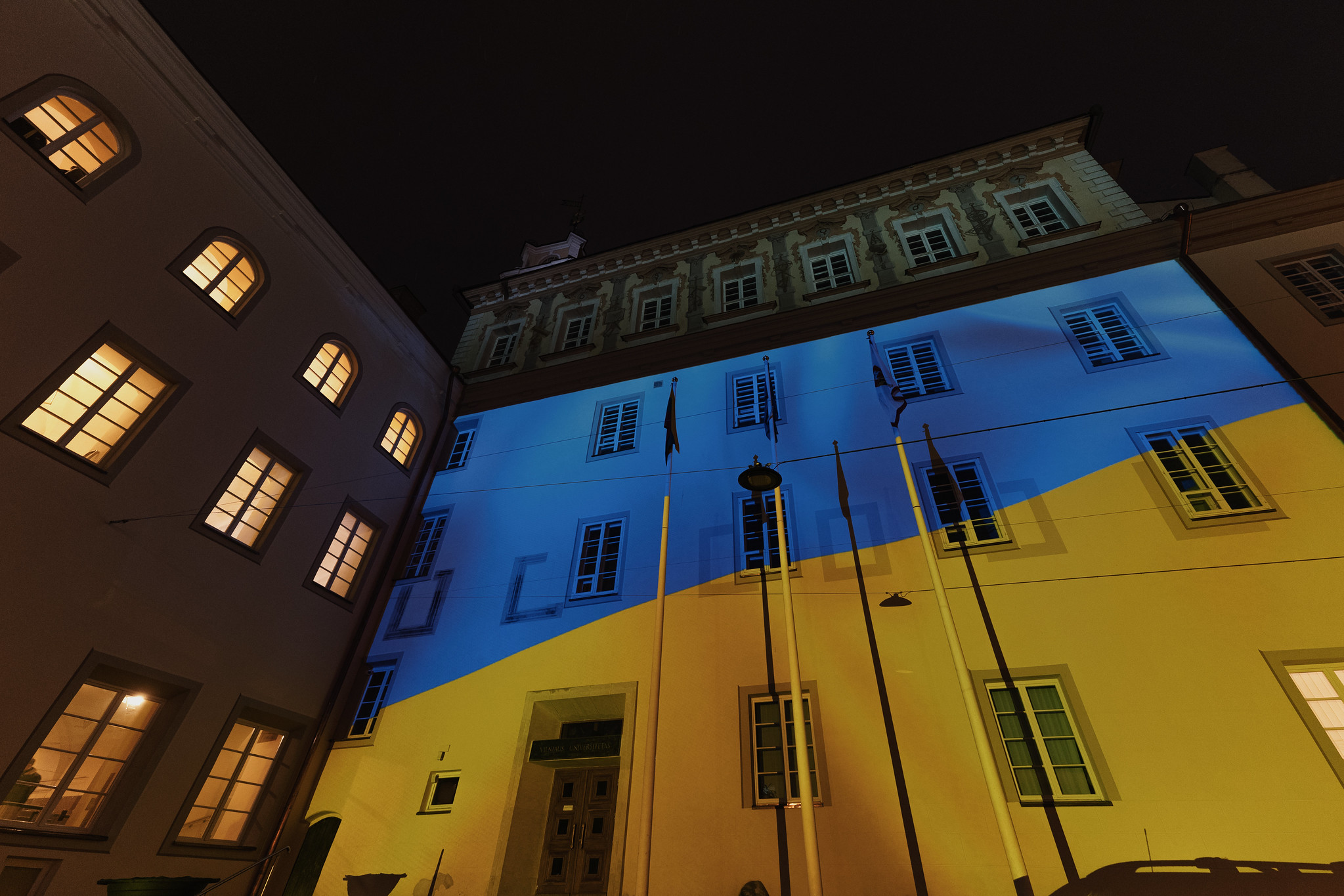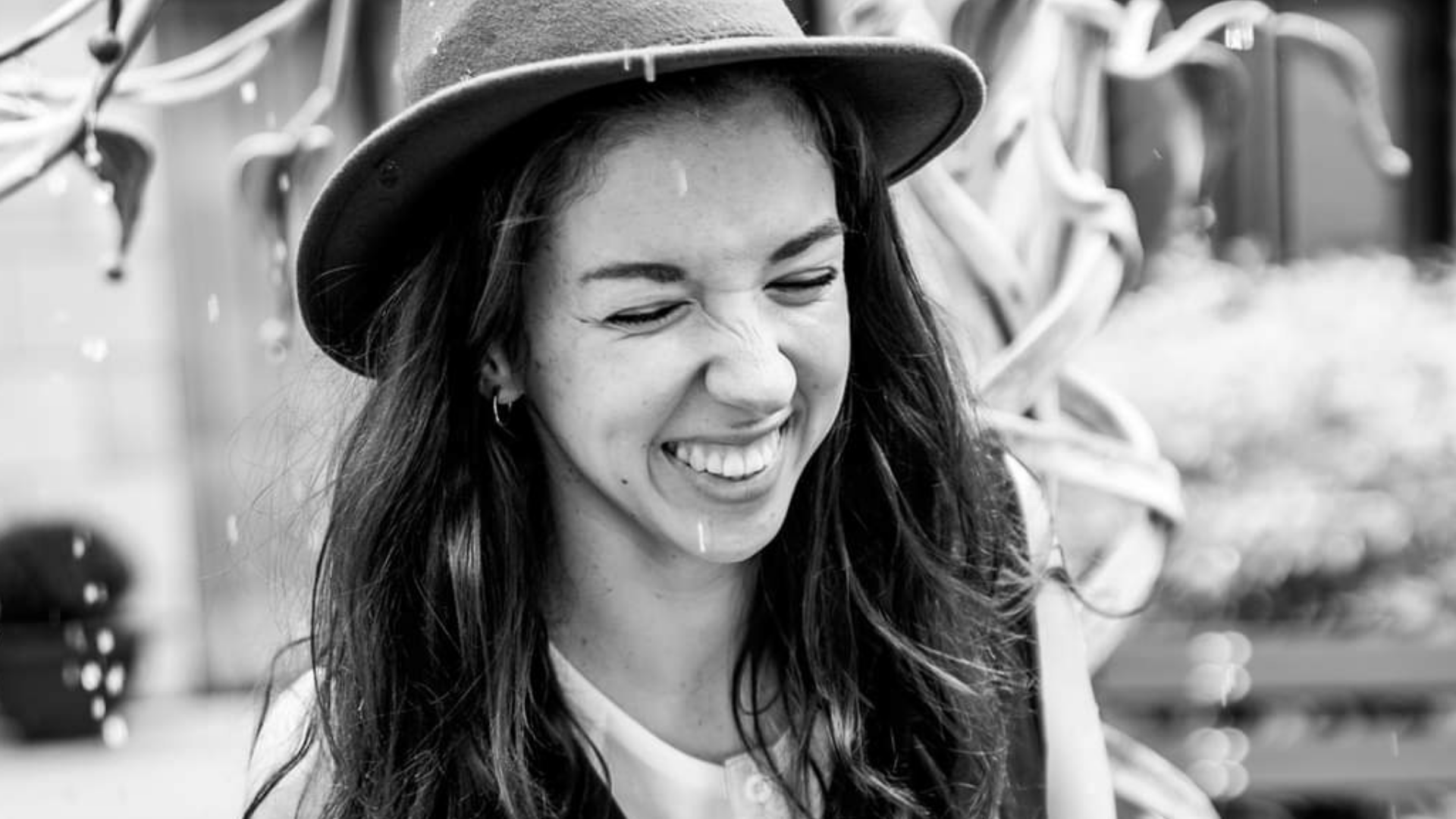VU Alumna Petrauskaitė after Returning from Kyiv: The Fact That Our University Implements Initiatives Like That Is of Great Importance
 ‘It is wonderful how people connect, show empathy, and fully understand that if the Ukrainians are unable to hold their ground, the war will extend to Europe and, perhaps, the rest of the world,’ says Oleksandra Petrauskaitė, a Vilnius University (VU) alumna from Ukraine, speaking in perfect Lithuanian. When Russia started its war against Ukraine and there were sounds of explosions where they lived, she and her family were forced to flee their home. She is now back in Lithuania with her younger sister; their father stayed behind to defend his country and got wounded, and their mother volunteers at a hospital near Kyiv.
‘It is wonderful how people connect, show empathy, and fully understand that if the Ukrainians are unable to hold their ground, the war will extend to Europe and, perhaps, the rest of the world,’ says Oleksandra Petrauskaitė, a Vilnius University (VU) alumna from Ukraine, speaking in perfect Lithuanian. When Russia started its war against Ukraine and there were sounds of explosions where they lived, she and her family were forced to flee their home. She is now back in Lithuania with her younger sister; their father stayed behind to defend his country and got wounded, and their mother volunteers at a hospital near Kyiv.
O. Petrauskaitė first came to Lithuania four years ago and subsequently completed her Master’s at Vilnius University Faculty of History. Her ties with Lithuania, however, extend much farther back, she says.
‘My grandfather was Lithuanian. At some point in the fourth year of my undergrad programme in history at Kyiv University, I became interested in the history of Lithuania because of my roots. I was very drawn to the topic of Forest Brothers – and wrote my Bachelor’s dissertation on it. My interest in the country was only getting stronger. I first came to Vilnius four years ago. I liked the city so much that I decided to stay here. I enrolled at Vilnius University’s Faculty of History, and this is how my life here began,’ says O. Petrauskaitė, having completed her studies in Lithuanian as the language of instruction.
Since then, she fully settled and was planning her future in Lithuania. On 22 February, she briefly returned to Ukraine, to her hometown near Kyiv, to celebrate her sister’s birthday, but two days later, on 24 February, the war broke out. She was supposed to return to Lithuania on 25 February but decided to stay in Ukraine, and she has no regrets about the decision.
‘I was there with my family. Had I been in Vilnius, it would have been much harder emotionally, I think,’ says O. Petrauskaitė.

She remembers how Russia started shelling Ukrainian cities with what probably was ballistic and guided missiles before 5 am, Lithuania time, on Thursday, 24 February.
‘I remember learning about what was happening from reading the news at night with my mother. We needed to decide what we do next. Our thinking was that because the Russian army was not physically present in this war at the time, we would wait until the morning and see how the situation unfolds,’ she says.
Military action did not cease in the morning, O. Petrauskaitė remembers. However, the true extent of the danger, according to her, was not clear at the time.
‘We have become accustomed to this, as we have been experiencing war for eight years now. Neither I nor my parents thought at the time that something terrible was happening,’ O. Petrauskaitė admits.
This is why, on the first day of the war, the family decided to stay at home and try and celebrate her sister’s birthday. They made a cake and visited some friends who lived nearby, while also constantly checking their phones to read the news and follow the course of the day’s events. However, with the Ukrainian military convoy’s passage through the city in the evening, it became clear for the family that they should leave immediately. The suitcases had been packed for this very moment a month ago.
‘We woke up to the sound of explosions in the morning. This was a bit scarier, as a missile exploded just above our house. Then, a jet flew by at a very low altitude. Although it wasn’t very near us yet, the sound was so powerful that it seemed as if everything around us was about to blow up. We lay on the ground and waited for the jet to pass us by. Then, we all quickly got into the car and headed to a village in Zhytomyr district,’ says O. Petrauskaitė.
She and her sister spent a week in this village, situated some 100km away from Kyiv. Their parents stayed there only for a day. Their father returned to the city to defend his country, with the mother choosing to volunteer at a hospital. O. Petrauskaitė also decided to try and help any way she can, starting to translate the news from Ukraine into Lithuanian and English.
‘Like many Ukrainians, I felt utterly powerless, because, physically, I would not be able to stop this nightmare however much I wanted to. I had to do whatever I could in the circumstances. My friends helped me get in touch with some journalists, whom I helped with translating the news. When I learned that my father is standing with a gun in his hands to defend the city at a ‘hot spot’ but had no ammunition or protective gear of any kind, my goal was to try and find what was needed, namely a vest and a helmet. I succeeded. And this is what I keep doing: searching for ammunition for anyone who needs it. Many of my friends in Kyiv or near it currently have no protection,’ she explains.
O. Petrauskaitė decided to return to Lithuania to stay with her loved ones, but her parents are still in Ukraine. Her mother continues to volunteer at a hospital and her father was shot in the leg during a street battle against the Russians. Oleksandra says she does manage to get in touch with her family, but their conversations are usually very short: ‘Still alive? You also still alive?’
The situation is very difficult, but Lithuania and other countries try to help Ukrainians in various ways. Vilnius University administration and multiple departments are also joining in the effort to help the people of Ukraine suffering from Russian aggression, doing so through symbolic gestures and various initiatives.
In response to the recent events, Vilnius University has extended the scope of its Grand Duchy of Lithuania Scholarship, established in the summer of 2020, and is now ready to offer tuition-free programmes and financial support to Ukrainian students whose studies and goals of attaining higher education are interrupted. Vilnius University’s psychologists are also prepared to offer various types of psychological counselling. The University has also launched a fundraising campaign on the Vilnius University Foundation website, with the donations going to those members of the Ukrainian academic community that need them the most. There are many other initiatives under way, too.
O. Petrauskaitė says that it is wonderful how people connect, show empathy, and fully understand that this war is not just about Ukraine but also about Europe or even the entire world. She points to the fact that Lithuanians stand out from others in that they not only talk or light up one building or another with the colours of the Ukrainian flag but also demonstrate their support with concrete action.
‘I have a lot of respect for Lithuanians for being so active, for taking such an active stance,’ says O. Petrauskaitė.
She emphasizes that continuing to study and maintaining academic routines is of crucial importance now. According to her, this would help to turn one’s attention away from the realities of war and instil some hope, especially among secondary education students.
‘The fact that our University implements initiatives like that is of great importance so that we have not only excellent professionals but also more psychologically resilient individuals in the future. Because if young people are deprived of higher education, depression becomes a real possibility. What you are doing is important and wonderful,’ says O. Petrauskaitė, remarking on the University’s support for Ukrainian citizens willing to study or re-enrol.